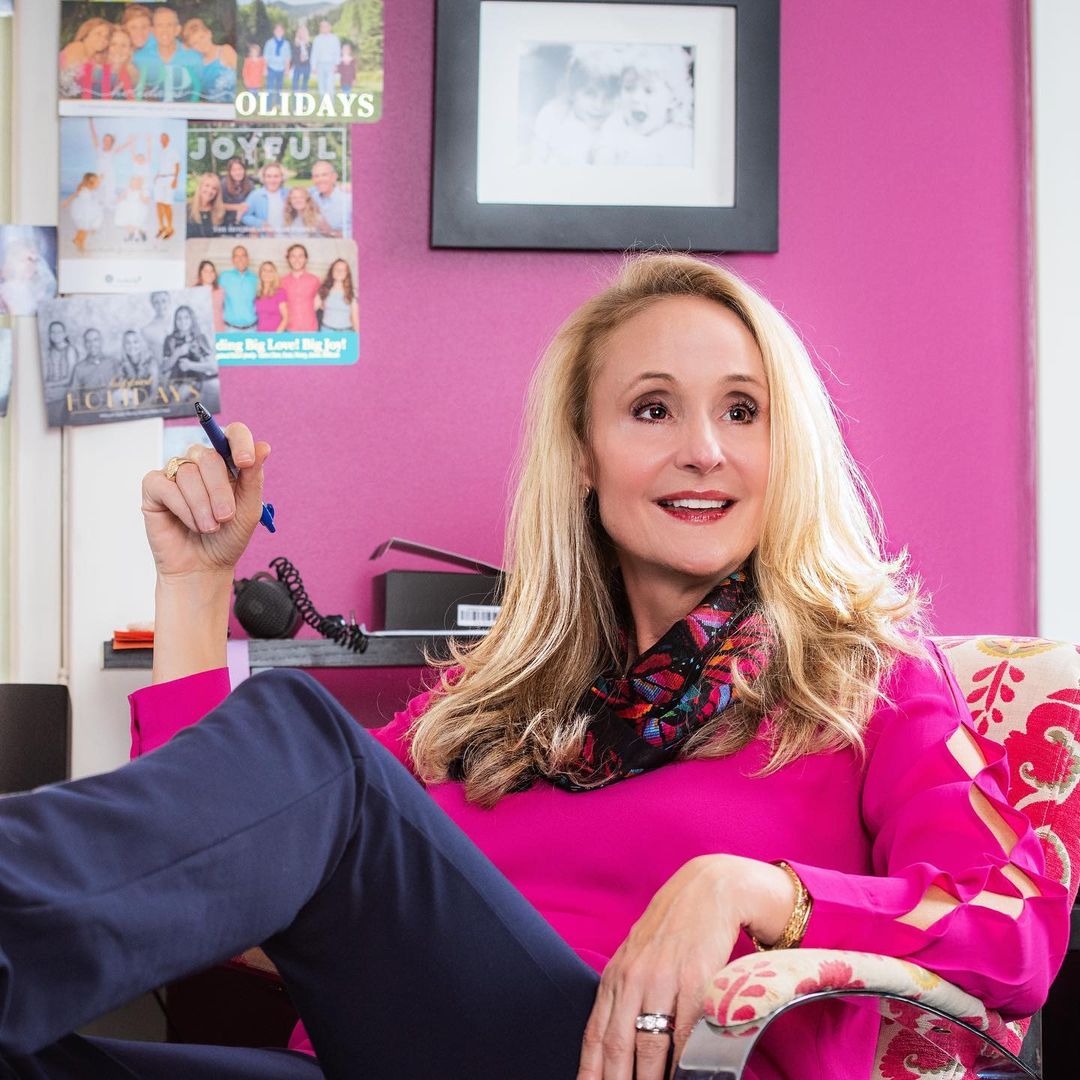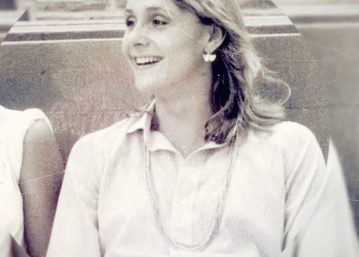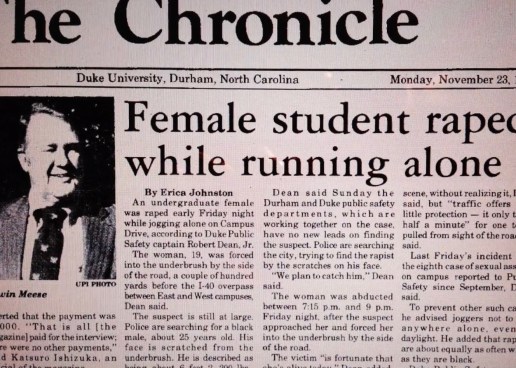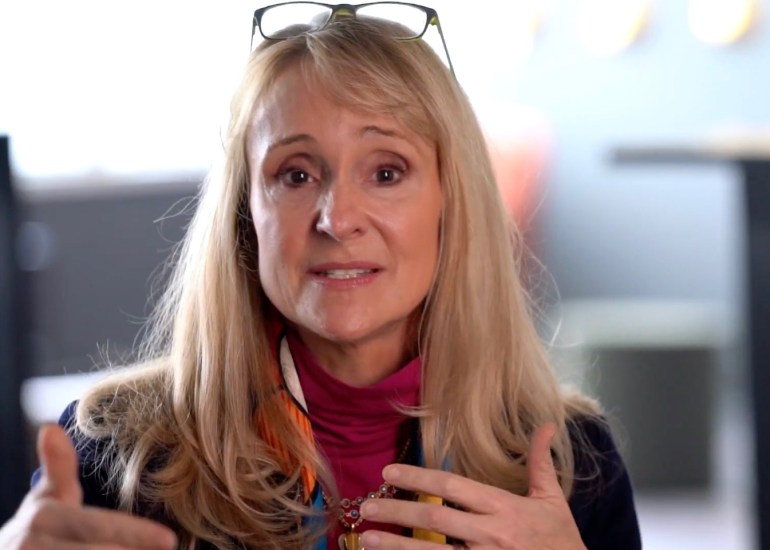IWD: Nancy Hogshead-Makar, Rape Survivor & Fighter For An End To Abuse in Sport

International Women’s Day (IWD): a fine moment to highlight the achievements and work of women pioneers and pathfinders in swimming, including Nancy Hogshead-Makar, advocate for Safe Sport, athlete’s rights and women’s sport, founder and head of Champion Women and 1984 Olympic 100m freestyle champion for the USA. To mark the occasion, SOS rolled out a package of features on legends, high achievers and others in women’s swimming who spoke and speak the Swimming Voice in one way or another. Some of the issues speak to the challenges rooted in the failed governance of swimming and the patriarchal leadership at the helm of the sport’s regulator.
Our SOS International Women’s Day coverage:
- Dr. Shane Gould – On Swimming Culture After A Lifetime of Learning
- Ada Of Amsterdam – ‘Gentle Giant’ Of Perseverance Who Rode A Mexican Wave To Gold
- Mel Marshall On Why Great Coaches Bring Female & Male Strengths To The Party
- Simone Manuel & Why Sorry Is Not The Hardest Word For Those Telling The Truth
- Debbie Meyer & Memories Of Momentum & Magnitude
- When Cate Campbell Spoke Truth To Power
The backdrop of that Advocacy:
Our SOS Spillover series and focus on swimming in a pandemic and the resonance of the swimming voice
- No 1 – Part 1 – Swimming In A Pandemic: Chlorine Kills Corona, So Why Were Swimmers Frozen Out By The Bug?
- No 1 – Part 2 – How Covid’s Big Chill Amplified The Tremor In A Swimming Voice Struggling To Rock The Boat
- No2 – Part 1 – The Independent Integrity Unit & Magna Carta Missing From Swimming
- No2 – Part 2 – 10 Issues Ripe For Scrutiny Of An Independent Swimming Integrity Unit
- No3 – Sun Yang & The Sequel With WADA … But Will Any Puppet Masters Be Called To Account?
- No4 – The Swim League, The Wrangle & The Womenfolk
- No5 – Athlete Abuse
“The Unrelenting”
Nancy Hogshead-Makar, along with Simone Manuel, two of the last three American women to claim the Olympic 100m freestyle crown, were honoured by Sports Illustrated last year in a ranking of “The Unrelenting”, a list of “the most powerful, most influential and most outstanding women” in American sports.
In advocacy for and in the interests of human rights, health, welfare and safety, Hogshead-Makar and Manuel have both written their own headlines for a variety of reasons, their work decidedly unrelenting.
Below the links to the great campaigns that Hogshead-Makar has run in advocacy for women in sport, abuse victims and the welfare of athletes in general, we recall the background to a champion’s passion for making the sports environment one in which athletes feel safe, are safe and their parents and parents and families know that to be the case.
Nancy Hogshead-Makar & Her Champion Work For Women
- Nancy Hogshead-Makar Honoured For Advocacy
- Nancy Hogshead-Makar & Simone Manuel Named Among The Unrelenting Powerhouses of Women’s Sport In USA
- Champion Women – What it’s all about and why you might want to support the work – sign up, join your voice to the chorus and, if you can, donate to keep the work going
- Great Day For Athlete Safety As U.S. House Matches Senate To Pass Empowering Olympic, Paralympic, and Amateur Athlete Act
- This former Duke Olympian was raped – and became an advocate for women’s rights
- Is Title IX Really to Blame for the Decline in Intercollegiate Men’s Nonrevenue Sports?
The 19-year lag between a 1991 USA Swimming Abuses Committee recommendation for Safe Sport measures and the 2010 implementation of some of those safeguarding policies remains one of the biggest and most costly mistakes among leaders of the American swimming authority and its representatives on international bodies.
Nancy Hogshead Makar has consistently called organisations to account for such lapses and to put right what has been wrong for so long. Safe Sport measures and systems remain imperfect but one of the main efforts at culture change that Champion Women continues to press home is the norm for every seven-year-old to 40-year-old to know, through education, that coaches shall not have romantic and sexual relationships with the athletes they coach.
Champion Women’s SafeSport Policies and Boundaries guide is a great resource that every club and program should make managers, coaches, parents and athletes/pupils aware of, points 1 – flat prohibition of relationships between coaches and their athletes – and 6, the points on boundaries, raise awareness of issues that continue to be problematic and under-appreciated in swim and other sports programs around the world.
Hogshead-Makar points to the Everest of work safe Sport and the federations behind them have yet to undertake, telling SOS: “Swimming hasn’t trained 1% of their athletes or 2% of their parents on very basic abuse issues is a problem.”
A Champion Turns Trauma Into Gold In The Pool & For decades Beyond It
Three years after the trauma of being raped by a stranger while jogging outside a university campus, American swimmer Nancy Hogshead lit up the 1984 Olympic Games in Los Angeles by winning three gold medals and a silver.
Today, the 58-year-old American lawyer, mother and activist devotes her life towards the fight for gender equality and the battle against sexual abuse in sport.
In an interview with AFP ahead of International Women’s Day 2020, Nancy Hogshead-Makar said she remained “unrealistically optimistic” about her work and life in general. She said:
“I guess you have to be in order to try to win in the Olympics and try to address sexual abuse in sports. They’re pretty audacious goals.”
The day before the interview, Hogshead-Makar had been working until the early hours drafting a letter to the US Congress about bipartisan legislation that calls for tougher protections for amateur athletes against abuse by coaches and employees.
Hogshead-Makar’s work ethic mirrors the dedication that formed the cornerstone of her swimming career – from the age of 11, she would spend four hours a day churning the waters of her training pool.
“My winning formula was to compete,” Hogshead-Makar said. “That’s how I was successful in life.”

After retiring from swimming, the Iowa native channelled her energy into helping others. After becoming a lawyer, she focused on campaigning for gender equality and combating sexual abuse in sport.
For decades, Hogshead-Makar did not talk publicly about the traumatic events that occurred in the autumn of 1981 when she was 19.

While out jogging outside the campus of Duke University in North Carolina, she was raped by a stranger.
“I felt profoundly broken. I felt forsaken by God. I was scared all the time,” said Hogshead-Makar, who suffered from post-traumatic stress disorder for months after the attack.
“I thought that I could overcome it by willing it away.”
Newspaper ragout: Who was to blame? “… while running alone…” reads the headline of a rape report – Chronicle screenshot
Hogshead-Makar said she benefited from two things that many sexual assault victims don’t receive. She said:
“Number one, everybody around me believed that it happened. Number two, people believed in the depth of my emotional harm. Nobody told me, ‘Just get over it’.”
With help and support from loved ones, coaches, Duke faculty and administrators, she rebuilt her life but kept the attack private.
Former Olympic swimmer Nancy Hogshead-Makar has dedicated her life to gender equality while fighting sexual abuse in sport. She says:
“I didn’t talk about it for 20 years because I would have started to cry; I wasn’t quite healed enough.”
Eventually, a friend and mentor, the human rights activist Richard Lapchick, suggested that talking publicly about her experience as a rape survivor could be a way to help others. Hogshead-Makar recalls:
“He said, ‘You really need to start talking about your own experience’. And he was right. It made me a better advocate. My hope is that other, older women with great lives will disclose this part of their story.”
Harnessing Experience To Advocacy For A Safe Sports Environment

In her efforts to foster change in Olympic sports in the United States, she’s drawing from her experience as an elite swimmer.
Hogshead-Makar believes that the nature of competitive swimming fosters equality:
“It’s no coincidence that some of the best gender equity advocates come from the sport of swimming because we see equality. I trained almost exclusively with guys. I was accustomed to having things be fair. We swam lap-for-lap and we lifted weight-for-weight.”
There have however been cases of questionable behavior.
One of Hogshead-Makar’s former coaches, Mitch Ivey, was suspended from the sport for life in 2013 after evidence emerged of improper sexual relationships with multiple swimmers he had coached. Says Hogshead-Makar, founder and CEO of the advocacy group Champion Women:
“The boundaries are just not well spelled out the way they are for counselors, religious leaders or lawyers or teachers,”
In 2012, the United States Olympic Committee ordered all its member federations to ban intimate relationships between coaches and athletes, regardless of age and consent.
Hogshead-Makar, however, says the message still needs to be reinforced. She estimates that only 0.5 percent of swimmers and 1.4 percent of their parents have received adequate training to safeguard against the problem.
To raise awareness on the issue, Hogshead-Makar is working on a social media campaign with Child USA, a non-profit which works to end child abuse and neglect in the United States.
She was also heavily involved in the effort to set up the US Center for SafeSport, the first independent organization to combat sexual and physical violence in Olympic sports, which launched in 2017.